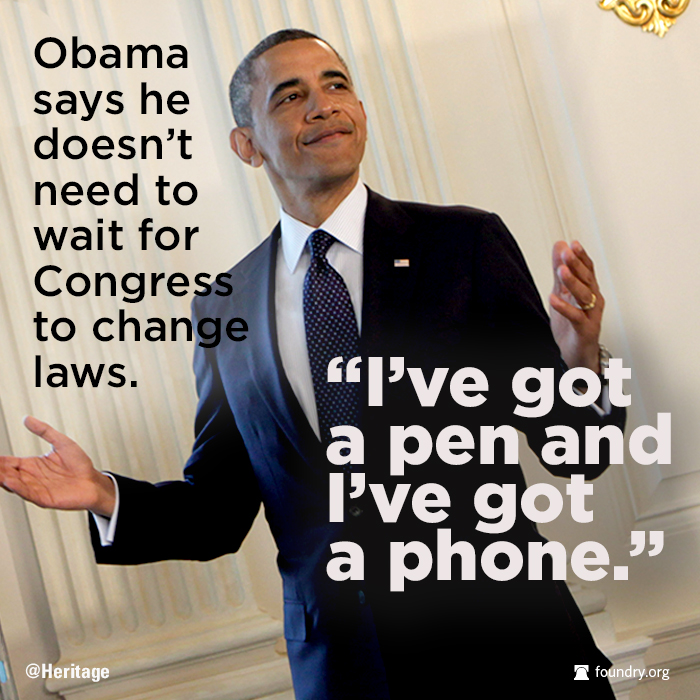President Obama reminded Congress and the American people yesterday that he’ll use his executive power in any way he can think of.
“We are not just going to be waiting for legislation in order to make sure that we’re providing Americans the kind of help that they need,” President Obama said Tuesday. “I’ve got a pen and I’ve got a phone.”
ABC News’s blog called these “weapons of legislative warfare,” while Politico dubbed it “2014’s pen-and-phone strategy.”
Press Secretary Jay Carney said the President is just giving the people what they want.
“He will not limit himself and certainly doesn’t think the American people would want him to limit himself just to what he could do legislatively through Congress,” Carney said yesterday.
The President has come a long way from his stance in 2011, when he told an audience, “The idea of doing things on my own is very tempting, I promise you, not just on immigration reform. But that’s not how our system works. That’s not how our democracy functions.”
And yet, despite the fresh threat of Obama’s executive pen, this isn’t a new strategy for the Administration. The Administration hasn’t needed Congress to enact new regulations on the Internet, businesses, energy production, and religious institutions. It has used its power to give struggling labor unions a new edge. It has granted amnesty to illegal immigrants. And it has rewritten welfare law to gut out the work requirements.
In short, Obama’s redefined the presidency.
“Whether it is ignoring our nation’s immigration laws, making unconstitutional recess appointments, waiving work requirements in welfare reform laws, or waiving clear provisions of Obamacare, President Obama has shown no qualms about taking unilateral actions that bypass Congress and ignore important separation of powers principles that are an essential safeguard of our liberty,” said Heritage’s John Malcolm, director of the Edwin Meese III Center for Legal and Judicial Studies.
“While a President certainly has the right to enter executive orders that provide guidance to executive branch agencies and officers, he cannot do so when it contravenes duly enacted, valid laws,” Malcolm told The Foundry. “We live, after all, in a democracy, not a monarchy.”




























